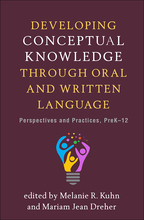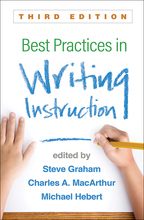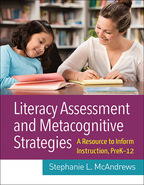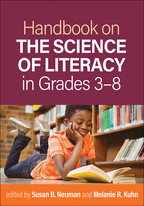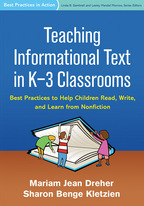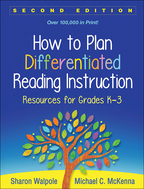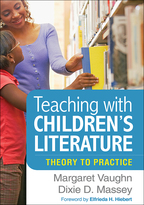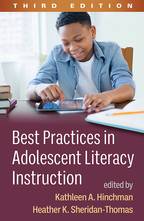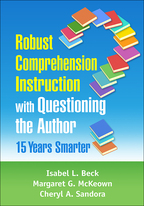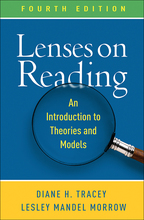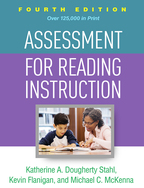Developing Conceptual Knowledge through Oral and Written Language
Perspectives and Practices, PreK-12
Edited by Melanie R. Kuhn and Mariam Jean Dreher
Foreword by Elfrieda H. Hiebert
HardcoverPaperbacke-bookprint + e-book
Hardcover
orderApril 6, 2020
ISBN 9781462542628
Price: $60.00 238 Pages
Size: 6" x 9"
Paperback
orderApril 6, 2020
ISBN 9781462542611
Price: $40.00238 Pages
Size: 6" x 9"
“By addressing how students acquire concepts related to language and reasoning, this book provides teachers with a range of ideas important to literacy development across grades and contexts. Each chapter presents a cohesive framework for considering multiple aspects of language, both oral and written. The volume supplies a needed perspective on the complex array of skills and knowledge that must develop in concert across time and experience to support school success. It will be a valuable text for courses focused on early reading/literacy development and instruction, and an excellent supplemental text for graduate courses on content-area/disciplinary literacies.”

—Carol A. Donovan, PhD, Director, Belser–Parton Literacy Center, University of Alabama
“This volume shows how educators can help students use language in all its forms to prepare them to engage effectively in the world of knowledge. It presents strategies for developing students' language and literacy skills in ways that build both conceptual understanding and the abilities to think critically and communicate competently. Readers will benefit from a breadth of accessible practices for supporting students across grades and throughout their school learning experiences. Importantly, the book is designed to help bridge the gap between research and practice. The key takeaways for teachers and the discussion questions make the text especially useful for preservice teacher training and professional learning.”

—Alison K. Billman, PhD, Director of Early Elementary Curriculum, Lawrence Hall of Science, University of California, Berkeley
“This book is an excellent resource for classroom teachers, literacy leaders, and teacher educators. The contributors present a holistic view of language and literacy development, reminding us that language and literacy are essential tools for constructing meaning and for exploring the world around us. The central topic of conceptual knowledge development is extremely timely and relevant. Every chapter is written with the clear goal of using current research to suggest implications for classroom practice. The book is full of concrete examples and recommendations, making it a terrific text for use in a teacher study group or professional learning community. It would also serve well as a core text for graduate-level education courses.”

—Juliet L. Halladay, PhD, Department of Education, University of Vermont
—Carol A. Donovan, PhD, Director, Belser–Parton Literacy Center, University of Alabama
“This volume shows how educators can help students use language in all its forms to prepare them to engage effectively in the world of knowledge. It presents strategies for developing students' language and literacy skills in ways that build both conceptual understanding and the abilities to think critically and communicate competently. Readers will benefit from a breadth of accessible practices for supporting students across grades and throughout their school learning experiences. Importantly, the book is designed to help bridge the gap between research and practice. The key takeaways for teachers and the discussion questions make the text especially useful for preservice teacher training and professional learning.”
—Alison K. Billman, PhD, Director of Early Elementary Curriculum, Lawrence Hall of Science, University of California, Berkeley
“This book is an excellent resource for classroom teachers, literacy leaders, and teacher educators. The contributors present a holistic view of language and literacy development, reminding us that language and literacy are essential tools for constructing meaning and for exploring the world around us. The central topic of conceptual knowledge development is extremely timely and relevant. Every chapter is written with the clear goal of using current research to suggest implications for classroom practice. The book is full of concrete examples and recommendations, making it a terrific text for use in a teacher study group or professional learning community. It would also serve well as a core text for graduate-level education courses.”
—Juliet L. Halladay, PhD, Department of Education, University of Vermont

